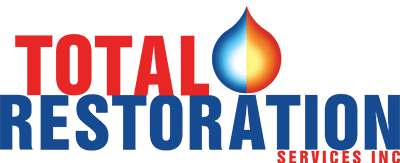Finances can be confusing in their own right, especially now with today’s unpredictable inflation and interest rates. It can be incredibly challenging to determine where you stand, particularly regarding your insurance policies.
Whether you’re looking to take out a new policy or considering alterations to your current account, here are five of the most common mistakes when purchasing an insurance policy.
Basing your decision solely on price
Most of us are always out to get the best deal, and competitive pricing is crucial. However, the cheapest option is not always the best, especially when considering insurance companies—this isn’t to say that you shouldn’t shop around to find the best price. You just need to be smart about it.
It’s best to ensure that the firm is financially viable while supplying reliable customer service. Be sure to do your own independent research and ask family and friends about their insurance companies, as well as collaborate with your broker to get a better idea of which policy will best suit your needs.
Not reading the fine print
We get it. Contracts, especially insurance policies, are long and arduous. It can be very tempting to skim or even forego entire sections. However, when selecting an insurance policy, you must know what you’re getting into.
To avoid potential pitfalls, a firm comprehension of what your policy entails is crucial in determining what coverage you have and what the various policies mean. For instance, did you know that flood damage is not considered a form of water damage?
That’s right. Most homeowners insurance does not cover flooding associated with extreme weather, such as storms, heavy rain or hurricanes. And that’s just one example!
Overlooking tenant’s insurance
Like the above flooding example, many people naturally assume that they don’t need insurance to cover renters. Moreover, many renters believe that tenant insurance isn’t necessary. Both are wrong!
For landlords, purchasing a solid home insurance policy is paramount to cover the entire property, whether it’s a detached house with a rentable basement suite or a multi-unit building. It covers onsite facilities, such as gardens, garages, appliances and other immobile features, as well as adds a layer of protection if someone were to injure themselves on the property or any damage tenants may cause.
For renters, even if the landlord is insured for the property you are renting, you are still liable for any potential damage. Additionally, their policy will not cover any personal belongings you have in or around the premises.
Not adding insurance for sewage leaks and backups
Save yourself the headache of being in a literal crappy situation by ensuring your homeowner's policy covers sewage leaks and backups. There is a grey area for this point, specifically, regarding damage caused to sewage lines running through the property.
For example, the homeowners' insurance policy will likely cover the cost if damage occurs to the pipe that is out of your control, such as an explosion, fire, or other uncontrollable instance.
However, if you want protection against system backups, you'll typically need to purchase an additional or separate policy.
Not updating your insurer of household changes
Life is often unpredictable, and properties, preferences and priorities can change over time.
However, not updating your insurance broker of significant life changes, such as getting married, performing home renovations, or leaving your home vacant for extended periods, can have negative consequences.
This sentiment also applies to high-value goods, such as antiques, collectables, art, jewellery, and other valuables collected over time. If you don’t add it to your policy, it won’t be covered.
